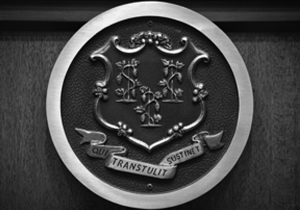Finance Committee Calls it a Day, Approves Tax, Bond Other Revenue-related Proposals
The Legislature’s Finance Committee today approved, along party lines, a proposed 2017 tax package that would support the budget approved by the Appropriations Committee yesterday. However, as many pointed out, the package does not include enough revenue to patch the entire deficit – now pegged at $930 million for 2017 by the nonpartisan Office of Fiscal Analysis. Because of this disconnect, Governor Malloy announced yesterday that he would issue a second budget proposal next week that would address the growing shortfall. Budget negotiations begin in earnest between now and adjournment on May 4th.
In addition to the tax package and other policy measures, the Finance Committee adopted, overwhelmingly, a bond package that cancels some $1 billion in previously approved, unused authorizations.
Following are some highlights of the tax package –HB 5046- approved by the Finance Committee today:
- Enhance collection and accuracy of tax collection, requiring banks and third-party settlement entities to submit monthly informational reports to the Department of Revenue Services (DRS).
- Adjust grant payments to town through the Municipal Revenue Sharing Account.
- Sweep $20 million in 2017 auction proceeds from the Regional Greenhouse Gas Initiative (RGGI) program into the General Fund (GF), and transfer $2 million from the current RGGI account within the Department of Energy and Environmental Protection into the GF.
- Raise the cap on R&D tax credits to 70 percent over three years instead of four. It is currently at 55%. This proposal would increase the cap to 65% in 2017 and 70% in 2018.
- Create a statewide marketing and promotion account and require DRS to deposit 9% of room occupancy tax ($5.5 million) into the account.
- Allow pass-through entities to apply apprenticeship tax credits against their personal income taxes, effective July 1, 2017 and applicable to income or tax years beginning on January 1, 2017.
- Exempt certain small productions from the film and digital media production tax credit moratorium.
- Eliminate state admissions tax and make it a local option tax, revenues from which would accrue to local municipality.
- Establish renewal fee for sales tax permittees.
- Tax fantasy sports betting.
- Reduce sales tax on luxury items from 7.75% to 6.35% over four years, and on boats from 6.35% to 3% over five years.
Finally, the Finance Committee approved a bill – SB 448 – that makes a number of substantive changes to various tax laws. Among other things, it would:
- Require companies to use market-based sourcing rather than origination-based sourcing to determine how sales of services and intangible personal property are sourced to Connecticut for corporation and personal income tax purposes.
- Require out-of-state retailers to collect and remit state sales tax if they have a “substantial economic presence” instead of a physical presence in Connecticut.
- Require multistate businesses to determine the percentage of their gains and losses attributable to Connecticut for personal income tax purposes based on their Connecticut sales, rather than the average of property, payroll and sales in the state.
- Extend, by one month, the due date for filing state corporation income tax returns for companies that do not have to file a federal return.
- Clarify the definition of a captive real estate investment trust for corporation tax purposes.
Note: The bill’s provisions are effective upon passage and applicable to income years beginning on or after January 1, 2016, except that the economic nexus provision is effective October 1, 2016, and income tax provisions are effective January 1, 2017 and applicable to income years beginning on or after that date.
With just over three weeks left in the 2016 legislative session, there is some heavy lifting to do to address the state’s fiscal woes before adjournment. We will be sending out periodic bulletins to keep you apprised of developments.


